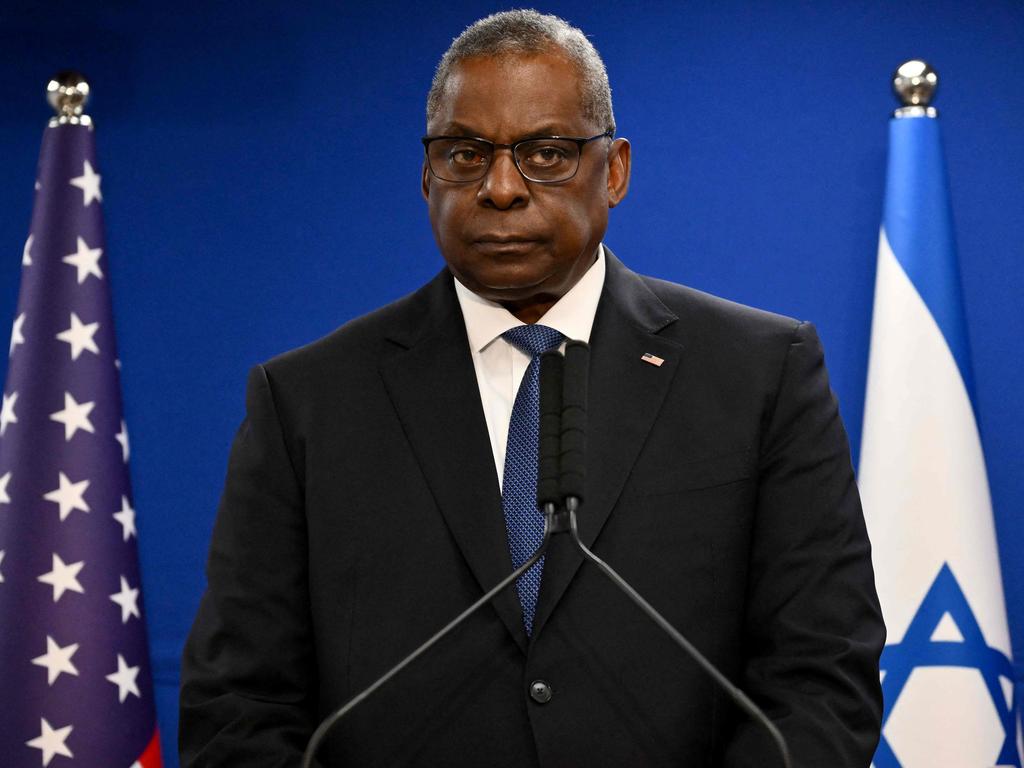Australia choses bludger’s option with US: ‘you provide for our security, we do nothing in return’


Marles is emerging as the very worst type of defence minister, full of hollow bluster and grandiloquent claims, but capable of delivering absolutely nothing.
We are saying to the Americans and the Brits – under AUKUS we expect you to send your most powerful military assets, nuclear submarines, to Australia to provide for our security, but we are so small, so lacking in capability and so scared of our own shadow, that under no circumstances can we spare a single ship of any kind to help you protect commercial shipping routes – from which we benefit directly – in the Red Sea.
It’s the first modern context in which Australia has so obviously chosen the bludger’s option: you provide for our security, we do nothing in return.
Marles says we don’t lack capability.
But it is an undeniable fact that one of our eight ANZAC frigates is virtually permanently out of the water. It is an undeniable fact that we are gravely short of navy crews. It would be a miracle if we could fully crew half of our notional eight ANZAC frigates, even in an emergency, at any one time. It is an undeniable fact that our ships do not have specialist anti-drone capabilities.
Therefore when Marles says the decision is not borne out of capability deficiency, he might I suppose mean that if we stop doing everything else we can possibly send one ship for one deployment, which would not have counter-drone capability but does have defensive missiles, but that’s it.
And if that’s it, then this is in effect a capability decision. If that’s not the case Marles could explain to us when the mothballed ANZAC will re-enter service, how many ANZAC crews we actually have, and why we still have no single armed drone in our entire defence force nor any specialist counter-drone capability.
Sending one ship to the Red Sea to help allies in a vital mission would not be the beginning of a new Middle East adventure along the lines of our troop commitments to Iraq and Afghanistan.
It would instead be exactly the kind of allied commitment undertaken by the Hawke government. But that was a government committed to defence capability and with some strategic sense.
How can the Albanese government blather on endlessly about the primacy of the rules-based international order but not make the slightest contribution, under US leadership and effectively under US protection, to maintaining that order, beyond a token commitment of a dozen-odd extra shore based staff?
The Albanese government’s grievous strategic dereliction was lavishly praised by the Chinese government mouthpiece the Global Times.
So that’s where all the brave but flatulent talk about defence capabilities from Marles has ended up, with the Albanese government reclining in the loving arms of the Chinese Communist Party. Certainly Beijing is a regional power which deeply appreciates the Albanese government’s strategic direction.

The idea that our navy is doing vital military work in the region is also, sadly, baloney.
It’s clear that our ageing, under armed, already wildly out of date frigates are not capable modern warships. The government could get such warships if it wanted to. We are the 11th or 12th richest nation in the world. We spend $52 billion a year on defence. Yet the Albanese government is so dithering, slow, disorganised and incapable of making a decision that it cannot transform these factors into useful capability.
But this government, heading towards two years in office, has not made a single, serious decision about our surface fleet or about much of anything else. If it had the remotest sense of urgency, we would already be building or purchasing capable surface ships which would come into service well within the next decade.
It thinks instead that by brandishing the AUKUS agreement, which may provide one nuclear powered sub in a decade, although that result is hugely doubtful, it doesn’t need to do anything else for defence at all.
Our military capability, which was pretty poor when the Albanese government came to office, has declined gravely since then.
Our ANZAC frigates pottering around the region as an alleged sign of our strategic resolve would under no circumstances provide the slightest inconvenience to the Chinese navy in any military situation.
We are scared of, and faced down by, the Houthi militia. There is no context in which the Chinese would need to worry about our grossly under armed ships at all. They are not really war ships but quasi-military, floating symbols.
The government has consciously chosen this defence impotence, confident that it can use the AUKUS dream as a shield from the Australian people knowing just how utterly naked we are in defence terms.
Marles’s claims that the Americans are fine with all this is absurd. Of course they won’t embarrass us with public criticism. Albanese claims that our diplomatic support for the American initiative in the Red Sea is the main thing. But for the American military, what you do, and what you can do, are infinitely more important than what you say.
The Chinese Communist Party is delighted with the Albanese government, what it can’t do and what it won’t do. The Americans, privately, are appalled.







Richard Marles’s confirmation that Australia will not send a warship to the Red Sea as part of a US-led operation represents woeful military capability and appalling strategic judgement.